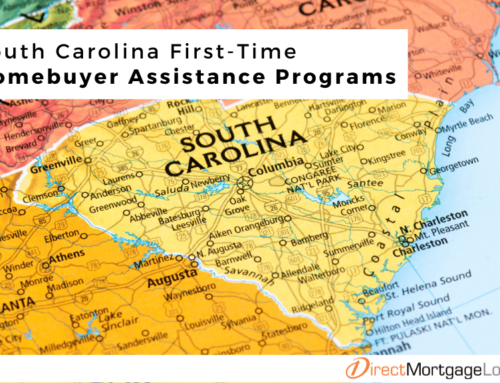What does conditionally approved mean?
When you receive conditional approval, it means you’ve met the initial requirements for your loan application. Nevertheless, there are specific additional conditions that must be satisfied before you can obtain full approval. The nature of these conditions can differ depending on the mortgage lender and the type of loan you are applying for.
Subscribe to our blog to receive notifications of posts that interest you!
The Mortgage Loan Application Process
The mortgage application process involves some key steps. To obtain a loan and purchase a property, you must complete several steps.
First, you need to submit an application. Next, your application will be assessed. If it meets the necessary criteria, you will receive conditional approval. Finally, after meeting all requirements, you will receive final approval.
Submitting the Application
The first step in the mortgage loan application process is to fill out an application. This app needs your personal info, documents, and property details like price, address, and type.
Initial Review
After you apply, your lender will review your application to determine if you meet their basic lending requirements. This includes checking your credit score, debt-to-income ratio, and employment status. If you meet the lender’s requirements, they will move forward with the application process.
Conditional Loan Approval
Once your lender has completed their initial review, they will typically issue you a conditional approval letter. This means that the lender has agreed to lend you money to purchase the property, but there are still some conditions that need to be met before the loan can be finalized.
Final Loan Approval
Once all the conditions have been met, your mortgage lender will issue you a final approval. This means that the loan has been approved and you can now close on the property.
What are common conditions for mortgage approval?
Mortgage approval often comes with specific conditions that borrowers must fulfill. Here are some common conditions:
- Income and Bank Statements Verification: Provide evidence of your monthly income through bank statements and additional documents.
- Additional Paperwork for Specific Loan Requirements: Meeting any additional paperwork or documentation requirements tailored to your specific loan.
- Verification of Homeowners Insurance: Ensuring you have the necessary homeowner’s insurance coverage.
- Gift Letters: If you’re using gift funds for your down payment, then you may need to provide gift letters.
- Letter of Explanation: Sometimes, you may have to provide a letter explaining a recent large withdrawal from your accounts.
Is conditional approval a good sign?
Yes, generally, receiving conditional approval for a loan is generally a good sign. It means that the lender has reviewed your application and is willing to proceed with the loan. However, they must verify certain information before they can grant final approval.
Benefits of Being Conditionally Approved
Conditional loan approval offers several benefits, including:
- It shows that you are a qualified borrower: The lender has already reviewed your credit report, income, and assets and has determined that you are a good candidate for the loan.
- It gives you leverage when negotiating with sellers: If you are conditionally approved for a loan, then you can show sellers that you are a serious buyer and that you are pre-qualified for the amount of the purchase price.
- It allows you to start planning for your purchase: Once you are conditionally approved, you can start shopping for homeowners’ insurance, scheduling inspections, and making other arrangements for your move.
Different Types of Mortgage Approvals
When you’re ready to buy a house, one of the initial steps you’ll need to take is obtaining a mortgage approval. The two main types of mortgage approvals: are pre-qualification and verified approval.
Pre-Qualification
Pre-qualification is the first step in the mortgage approval process. This is a relatively informal process where a lender will review your basic financial information, such as your income, debt, and credit score, to give you an estimate of how much you can borrow. Pre-qualification is not a guarantee of approval, but it is a good way to get a sense of your buying power and start shopping for a home.
Verified Approval
Verified approval, also known as pre approval, is a more formal process where a lender will review your financial information in more detail and issue you a letter of pre-approval. This letter states the maximum amount of money that the lender is willing to lend you and the terms of the loan, such as the interest rate and loan term.
Conditional Approval vs. Pre Approval
Conditional loan approval and pre approval have distinct roles in the mortgage process. Approval with conditions is a formal step where the lender assesses your financial details in-depth, qualifying you with specific conditions. On the other hand, pre approval is an earlier and less detailed stage that doesn’t examine your finances as thoroughly. Despite their differences, both are crucial components of your path to homeownership, each serving a unique purpose.
How likely is it to get denied after conditional approval?
Conditional approval doesn’t guarantee your loan will be approved, as there’s a chance it could be denied. This can happen if you don’t meet certain loan conditions. For example, if you take on new debt unexpectedly, if the underwriter can’t verify your financial documents, or if you can’t meet the conditions on time, then your loan application might be denied.
What happens after you receive conditional approval?
After you receive conditional mortgage approval, your mortgage lender will require you to meet certain conditions before they will issue the final approval letter. When you’ve met all the conditions listed in your conditional approval letter, you’ll receive the final approval letter. This means that your loan is ready for closing and you can move forward with purchasing the home.
How long after conditional approval is closing?
The length of time it takes to finalize a loan after receiving conditional approval can vary, depending on factors such as the lender, loan complexity, and how promptly the borrower responds. When you work with Direct Mortgage Loans you could expect to reach the closing table within 30 days or less. If you need help applying for a mortgage, then reach out to one of our expert loan officers today!
Conditional Approval Mortgage FAQs
How long does conditional approval take?
Conditional approval typically spans from a few days to a few weeks. If you provide the necessary papers and answer any questions from your underwriter quickly, your loan approval can be completed faster.
Is a conditional approval a loan commitment?
No, conditional approval is not a loan commitment. It simply means that the lender has reviewed your basic financial information and believes that you are likely to qualify for a loan, but they still need to verify your information and complete their underwriting process.
What’s the difference between conditionally approved and unconditionally approved?
Conditional approval means that you have fulfilled the lender’s basic mortgage requirements. However, they still need to verify your information and complete their underwriting process. Unconditional approval, on the other hand, signifies that the lender has fully verified your information and approved your loan.
Why would an underwriter deny a loan after conditional approval?
A few reasons why an underwriter might deny a loan after conditional approval:
- You have not met all the conditions of your approval, such as providing proof of income or employment.
- Your financial situation has changed significantly since you were conditionally approved. This could happen if you lose your job or accumulate more debt.
- The underwriter finds out new details about your credit or finances that they didn’t know when they initially approved you.
- The lender changes their lending criteria.
Pre-approval based on credit history, debt to income ratio, income, employment and down payment. Approval is subject to eligibility. Eligibility and approval is subject to completion of an application and verification of home ownership, occupancy, title, income, employment, credit, home value, collateral and underwriting requirements. Direct Mortgage Loans, LLC NMLS ID# is 832799 (www.nmlsconsumeraccess.com). Direct Mortgage Loans, LLC office is located at 11011 McCormick Rd Ste 400, Hunt Valley, MD 21031.






Leave A Comment
You must be logged in to post a comment.